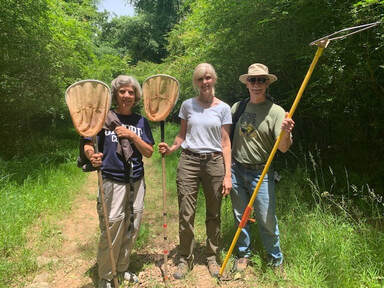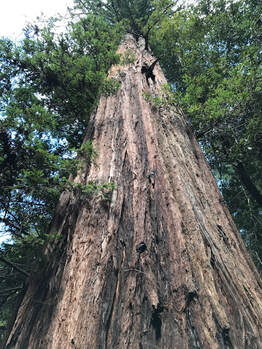|
By Maurice Carter, Sustainable Newton President 
On June 1, 2021, President Joe Biden issued an executive order temporarily suspending oil and gas drilling leases for the Arctic National Wildlife Refuge (ANWR) in Alaska. The controversial leasing program was finalized in August 2020 during President Donald Trump's final year in office.
President Biden's order cited "legal deficiencies" with the current program and "inadequacy" of the previous review process. As a result, the US Department of the Interior is initiating a "comprehensive environmental analysis to review the potential impacts of the Program and to address legal deficiencies in the current leasing program’s environmental review." That review will include public comments and testimony, starting with six sessions this week. On September 14, at the invitation of Environment America and representing Sustainable Newton, I delivered virtual testimony before the Federal Bureau of Land Management Alaska Field Office. You can read the text of my verbal testimony here. You can also view the presentation from the bureau and listen to all of yesterday's testimony in the Facebook Live video below. (My testimony begins at the 28:04 mark.)
0 Comments
By Theodosia Wade, Past Sustainable Newton Board Member  Who Doesn’t Love a Creek? Thanks to the City of Oxford’s Sustainability Committee, I had a chance to play in the creek again with the Stream Team of GA and folks from UGA’s Warnell School of Forestry and Natural Resources. Since retiring, I really miss that part of teaching of Environmental Science at Oxford College, so it was a real treat for me to get my feet wet and my hands slimy. On Saturday, we sampled a stretch of Dried Indian Creek behind the Oxford College Organic Farm to see how many different kinds of fish we could find. Using an electro-shocker, the team collected fish from horny head chub to yellow fin shiners -- even a few salamanders. No worries though, it was all catch and release with 0% fish mortality. What a beautiful array of fish, many in their brilliant breeding colors.
By Mike McQuaide, Sustainable Newton Board Member
We celebrate Arbor Day in Georgia in February (on the 3rd Friday), when weather conditions are best for planting trees. This year, many communities are scaling back or canceling celebrations dues to COVID-19. So, we asked board member Mike McQuaide to reflect on his love of trees. 
One year into the COVID-19 pandemic, many people have had occasion to focus more clearly on the features of life they value the most. The adage “you don’t miss your water until your well runs dry” is certainly applicable at this moment in American history. Being with friends and family indoors, going into restaurants and stores, freely traveling to distant places, and the many dimensions of life are suspended to some extent right now. Many of us find it insightful to step back and consider more deeply the features of life that we have taken for granted --but now seem out of reach-- at least for the time being.
Broadening our appreciation of the world we take for granted can bring a renewed appreciation and desire to protect the natural world. The natural environment is complex and diverse; one visible aspect of the natural world are the trees around us. Arbor Day provides an opportunity to step back and consider the many benefits of trees in our shared communities. The most visibly obvious benefits being the aesthetic advantages of trees. On a subconscious level, trees can evoke our sense of beauty. Office workers with a view of trees are more productive than those in windowless workplaces. Seeing trees can reduce our blood pressure and help our muscles to relax. With holiday decorations safely stored (right!?), our thoughts drift between reflections on the year just passed and anticipation for a new one fast approaching. It's a time for resolutions -- small and sometimes large promises to ourselves regarding changes we want to make in the new year. At Sustainable Newton, we see the impact our actions have on our environment and our neighbors. Our board members are going out on a limb to share our resolutions in hopes you too will embrace small changes that together make a huge difference. By Sara Vinson, Sustainable Newton Board Member  One of my resolutions for 2020 is to finish transitioning our household light fixtures to light-emitting diode (LED) light bulbs. Honestly, I thought this was something my family had already done. However, when a light bulb over my bathroom sink recently went out, and I had to change it, I noticed that it was a compact fluorescent (CFL) bulb. Then, I looked around and found that we still have a good mix of CFL, incandescent, and halogen light bulbs in the house. Why go to the trouble and expense of switching to LEDs? According to the Consumer Energy Alliance, LED bulbs produce light up to 90% more efficiently than incandescent light bulbs and 80% more efficiently than CFLs. Since my family is trying to reduce energy use, this sounds good. By Mike McQuaide, Sustainable Newton Board Member  Here's a little good news to share... I recently had an arborist come out to our home in Oxford to check on our sickly elm tree to see if it could be saved. Thankfully, it can be. But, that’s only part of the good news. When the arborist finished diagnosing the elm, he walked around to our large front yard and mentioned the space “would be perfect for some trees.” He volunteered that Emory University had not been able to meet its goals for no net loss of trees on property owned by the university. And, as a result, Emory was looking for nearby property owners interested in having trees planted on their property for free. |
Categories
All
Archives
February 2024
|
Photos from Chemist 4 U, shixart1985 (CC BY 2.0), Juhele_CZ, EarthLED, shixart1985, EcuaVoz, Chemist 4 U

 RSS Feed
RSS Feed
